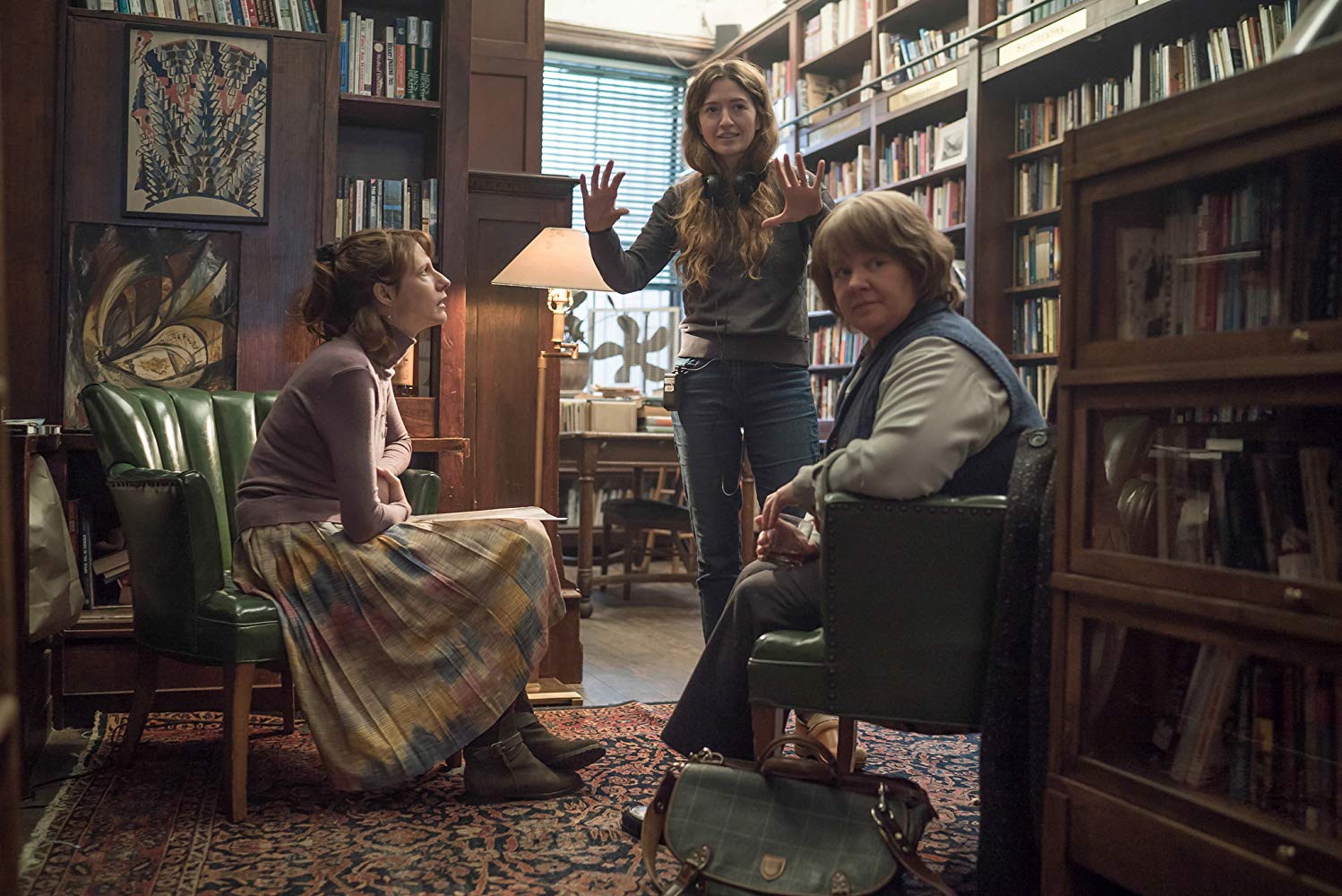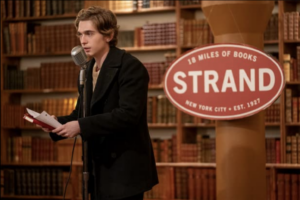2018 delivered many great albums and movies. To end the year, we’re celebrating some of our favorites that you may not have heard of before. All stories deserve a chance, and that’s what Halftime is here for.
Twin Fantasy (Face to Face) by Car Seat Headrest
Sometimes, the second try’s the charm: Twin Fantasy (Face to Face) is technically a re-recording of the band’s 2011 album, Twin Fantasy (Mirror to Mirror), but it is an improvement on every front. The change, from mirrors to faces, presents itself in multiple aspects of the album. Sonically, the album is a huge leap forward for the band, having been recorded with real, studio-quality equipment and reworked with more powerful crescendos, clearer harmonies, and more thoughtful song structures. Thematically, however, the album also shows Will Toledo, the band’s frontman, faced with a similar predicament, falling in love, but thinking with greater depth and emotional maturity than before. The contrast of mirrors and faces comes from 1 Corinthians 12:13: “For now we see in a mirror dimly, but then face to face. Now I know in part; then I shall know fully, even as I have been fully known.” Rather than simply looking back at a reflection, as Toledo saw his partner before, he faces a reality that lives and breathes and is altogether present in ways that reflections can never be. Seven years wiser, Toledo interrogates his experience—and reinterrogates his former reactions—crafting a magnum opus that delves into love, aging, and friendship, all while fusing unforgettable melodies, powerful crescendos, and indie nonchalance.
The album shows remarkable depth in its understanding of love and its many facets and acts as a chronicle of relationships in the digital age. Each song on Face to Face illuminates a different side of Toledo’s affection, from the simple longing of “My Boys” to the nervous, awkward opening lines of “Bodys.” Toledo’s instrumentation matches these themes in weight and import, and it would make the album worth listening to even without its lyrics. As Toledo careens between overwhelming emotions, he similarly careens musically, in one instance diving headfirst into screaming choruses as his guitars wail, and in the next stripping back to a simple drumline that supports a read quotation. Despite the album’s broad sonic range, none of the notes feel out of place. Rather, they flow naturally, each giving the impression that no other note would have worked better in its place. The waves that Toledo has listeners ride are steep but reflect his emotion flawlessly, in turns crashing vigorously and submerging gently, each to magnificent effect.
—Gustav Honl-Stuenkel
Expectations by Hayley Kiyoko
This album definitely got a decent amount of attention when it was released, but I still feel that, overall, it was simply not appreciated enough. Expectations (2018) is Hayley Kiyoko’s first full-length album, following an extensive discography that features multiple EPs, numerous singles, and certain parts of the Lemonade Mouth (2011) soundtrack. While she’d already had certain minor hits such as “Girls Like Girls,” Kiyoko really took the time to discover and perfect her own sound before releasing an LP. This made Expectations all the more successful. The album manages to effortlessly weave together powerhouse singles, vulnerable synth ballads, and slightly more experimental pop pieces. The overall result is an album that is interesting to listen to due to its variety, but that also remains extremely sonically and thematically cohesive.
Much of Expectations focuses on Kiyoko’s struggles with love, specifically as a gay woman. Songs like the radio-friendly “Curious” and “He’ll Never Love You Like Me” convey a sense of fun, cocky energy over an upbeat track. Others like the slower “Sleepover” show a shier vulnerability, while “Molecules” masterfully uses the pop ballad to demonstrate heart-wrenching desperation: “Falling like a tear stain/Only for your cold ghost/Make me feel again.” Most interesting are the dreamy tracks “Mercy / Gatekeeper” and “Under the Blue / Take Me In” which really try to experiment with the genre and serve to set the mood for the entire album. The first manages to turn the phrase “Give me mercy/ ‘Cuz I keep hurting,” into both a demand and a plea, followed by the jarring spoken word of “Gatekeeper.” The second track conjures up ideas of a hazy, yet painful summer love: “Drowning in the streams, do your time on broken dreams/You get lost in neon green and you found me obscene/That’s what you want.” Overall, this album is such a success because it expertly uses the many different facets of the pop genre to convey Kiyoko’s own intimate experiences. The fact that “What I Need,” “Feelings,” and “Sleepover” did not make it onto the US Pop Charts will never not be a tragedy.
—Sky Coffey
Private Life
2018 saw more of Netflix’s attempts to be a serious contender in the film industry. Though all eyes have been on Roma (2018), Alfonso Cuarón’s personal masterpiece that might finally earn the streaming service its first Best Picture win at the Oscars, there was one film that was quietly acquired by the digital platform. Tamara Jenkins’s Private Life is a dramatic comedy that follows a New York City literary couple, played by Kathryn Hahn and Paul Giamatti, in their 40s who are desperately trying to conceive.
It’s understandable why very few people saw this movie. There’s nothing groundbreaking or timely about Private Life. No one asked for another quirky comedy about bougie New Yorkers and their first world problems. However, Jenkins’s sharp direction manages to transform ordinary conversations around a kitchen table into both hilarious family moments and soul-crushingly sad episodes. Giamatti and Hahn have never been better in this rich, wistful triumph that has no special agenda other than being the most thoughtfully-made version of this story. Private Life is not another attempt for Netflix to bolster its prestige; it is simply a beautiful piece of storytelling from a masterful female director. Jenkins’s work, which features one of the best ending scenes of the year, deserves to be seen—especially since you can watch it from the comfort of your own couch.
—Danielle Guida
Minding the Gap
Documentaries had a surprisingly big year in 2018, with RBG and Won’t You Be My Neighbor? offering inspiring social messages while Free Solo and Three Identical Strangers served breathtaking, unbelievable entertainment. Bing Liu’s Minding the Gap (2018), which can be found on Hulu, shies away from grand-scale statements and sweeping shots. The documentary spans 12 years and follows Liu and his two friends, Keire and Zach, who are bonded since childhood by their love of skateboarding in Rockford, Illinois: a city that, over the course of the film, feels more and more like a ghost-town due to its cripplingly weak economy.
Much like the style of Boyhood (2014), Liu’s film does not exactly have a plot, but rather a series of check-ins into the three boys’ lives over the years as they try to finish school, get minimum-wage-paying jobs, and still find time to skate. A skilled skater himself, Liu was his own cinematographer and shot many skating sequences that feel like a more refined version of the GoPro-esque videos on YouTube. Initially, Minding the Gap seems like a simple skater film, with Zach always drinking a beer or smoking a joint and Keire constantly skinning his knees after his latest trick-shot attempt. Liu masterfully compiles years of skating and interview footage to slowly reveal how their disenfranchised upbringings and shared experiences of domestic abuse are the true forces that bond them together. The revelatory moments when these bonds are tested are some of the most powerful, upsettingly human scenes of the year.
—Danielle Guida
Can You Ever Forgive Me?
On paper, the premise of Can You Ever Forgive Me? (2018) seems like an uninteresting story that was never intended for the screen. But Marielle Heller’s film based on the confessional autobiography of Lee Israel, the failed author who turned to forging letters of highbrow literary figures, is an unexpectedly touching examination of loneliness. An unorthodox criminal, Lee (Melissa McCarthy) is an irritable cat lady on the surface with a real hole in her life after being left by her girlfriend and dropped by her publisher. Lee stubbornly refuses to learn a new trade and leave the literary world. Rather, she finds herself in an incriminating situation as she forges prominent writers’ old letters, which become her only outlet to get her outdated writing out into the world.
What is most surprising about Heller’s film is that, at its heart, it is a love story—one that happens to be between a lesbian woman and a gay man. Lee makes an unlikely friend in Jack Hock (Richard E. Grant), a free-spirited man who is HIV-positive, homeless, and an alcoholic. Jack becomes Lee’s literal partner-in-crime as they create fake memorabilia to scam their way across the stuffy book collecting shops of New York. This central romance is heart-warming enough to distract from the bleak realities of these two characters’ lives. Grant is devilishly charming, and McCarthy is finally given the dramatic role an actor of her caliber deserves. Heller imbeds emotional depth into every frame of this film, as even the forgery scenes exhibit some heist-like thrills. Though Can You Ever Forgive Me? only tells one woman’s peculiar story, the finished product showcases the improbable lengths people will go to feel fulfilled—and, more importantly, to avoid feeling alone.
—Danielle Guida





